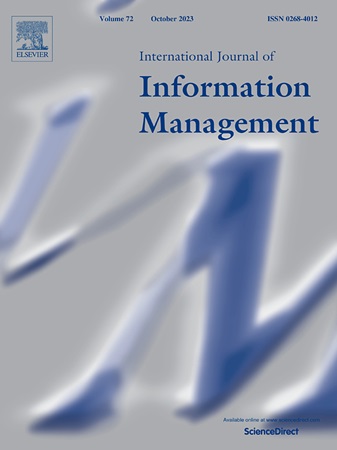Unlocking the potential of virtual endorsers: The role of brand-owned and brand-non-owned virtual endorsers in shaping brand attitude
IF 27
1区 管理学
Q1 INFORMATION SCIENCE & LIBRARY SCIENCE
International Journal of Information Management
Pub Date : 2024-12-12
DOI:10.1016/j.ijinfomgt.2024.102864
引用次数: 0
Abstract
As digital marketing evolves, virtual endorsers have become a key strategy for brands to attract and connect with consumers. More and more brands are using both brand-owned and brand-non-owned virtual endorsers. While existing research has largely focused on comparing virtual and human endorsers and typically categorizes virtual endorsers as human-like or cartoon-like, systematic studies on brand-owned and brand-non-owned virtual endorsers are still lacking. This research employs a mixed-method approach to explore the attributes of brand-owned and brand-non-owned virtual endorsers and their effects on brand attitude. Through qualitative methods, including focus group discussions, in-depth interviews, and essay writing, we identified ten key attributes of brand-owned and brand-non-owned virtual endorsers: endorser-brand match, independence, popularity, uniqueness, credibility, interactivity, informativeness, flexibility, novelty, and stability. Quantitative research using a survey demonstrated that both types of virtual endorsers and their attributes significantly enhance brand attitude. Additionally, an experiment explored the effects of brand-owned versus brand-non-owned virtual endorsers on brand attitude, brand association, and purchase intention across collectivist and individualist cultures. This research systematically investigates brand-owned and brand-non-owned virtual endorsers, enriching theoretical insights in digital marketing and advertising, and providing practical guidance for brands in selecting and managing virtual endorsers.
释放虚拟代言人的潜力:品牌拥有和非品牌拥有的虚拟代言人在塑造品牌态度中的作用
随着数字营销的发展,虚拟代言人已经成为品牌吸引和联系消费者的关键策略。越来越多的品牌同时使用自有品牌和非自有品牌的虚拟代言人。虽然现有的研究主要集中在比较虚拟代言人和真人代言人,并且通常将虚拟代言人分类为类人或类卡通,但对品牌拥有和非品牌拥有的虚拟代言人的系统研究仍然缺乏。本研究采用混合方法探讨品牌自营与非品牌自营虚拟代言人的属性及其对品牌态度的影响。通过定性方法,包括焦点小组讨论、深度访谈和论文写作,我们确定了品牌拥有和非品牌拥有的虚拟代言人的十个关键属性:代言人-品牌匹配、独立性、知名度、独特性、可信度、互动性、信息性、灵活性、新颖性和稳定性。定量研究利用一项调查表明,这两种类型的虚拟代言人和他们的属性显著提高品牌态度。此外,本实验探讨了集体主义和个人主义文化中品牌拥有和非品牌拥有虚拟代言人对品牌态度、品牌联想和购买意愿的影响。本研究系统地考察了品牌自有和非品牌自有的虚拟代言人,丰富了数字营销和广告的理论见解,为品牌选择和管理虚拟代言人提供了实践指导。
本文章由计算机程序翻译,如有差异,请以英文原文为准。
求助全文
约1分钟内获得全文
求助全文
来源期刊

International Journal of Information Management
INFORMATION SCIENCE & LIBRARY SCIENCE-
CiteScore
53.10
自引率
6.20%
发文量
111
审稿时长
24 days
期刊介绍:
The International Journal of Information Management (IJIM) is a distinguished, international, and peer-reviewed journal dedicated to providing its readers with top-notch analysis and discussions within the evolving field of information management. Key features of the journal include:
Comprehensive Coverage:
IJIM keeps readers informed with major papers, reports, and reviews.
Topical Relevance:
The journal remains current and relevant through Viewpoint articles and regular features like Research Notes, Case Studies, and a Reviews section, ensuring readers are updated on contemporary issues.
Focus on Quality:
IJIM prioritizes high-quality papers that address contemporary issues in information management.
 求助内容:
求助内容: 应助结果提醒方式:
应助结果提醒方式:


